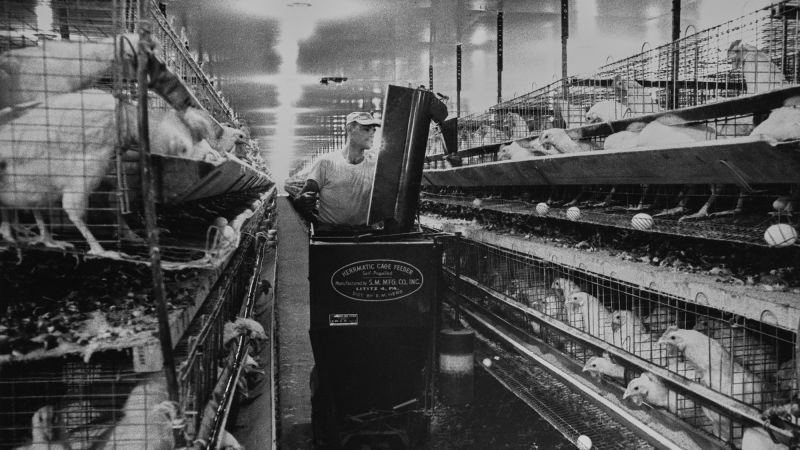
Chickens. Pickup trucks. Trade war?
CNN
It’s called a chicken tax, but it’s levied on pickups. And it shows just why President Donald Trump’s tariffs could change the US economy longer than you might think.
It’s called a chicken tax, but it’s levied on pickups. And it shows just why President Donald Trump’s tariffs could change the US economy longer than you might think. President Lyndon Johnson imposed the chicken tax in 1963, but it’s still in effect today, even though its supposed reason for existence is, well, no longer in existence. The import tax’s longevity, though, underscores how tariffs can reshape global markets, sometimes well past the conditions they were put in place to address. Trump’s trade war could change the way Americans and the world shops and buys for generations to come. To this day, the chicken tax essentially prevents automakers from selling pickup trucks made in Europe or Asia in America. Most US pickups are built in North America, leading to massive profits for US automakers but less choice and higher prices for millions of American buyers, as well as some impressively convoluted maneuvers by automakers to try to get around the tax. “Trump seems to think he can announce very high tariffs and then them dial back. But tariffs changes economic incentives,” said Dan Ikenson, an economist and former director of international trade at the Cato Institute, a libertarian think tank. “Constituencies develop and they take on a life of their own, and that’s why they’re long lived.” The chicken tax started, unsurprisingly, with chickens.

Predictions from mainstream economists were dire after President Donald Trump launched his tariff campaign just a couple weeks after he began his second term in office: Prices would rise — sharply — they said, reigniting an inflation crisis that tens of millions of Americans had elected him to solve.

Despite unprecedented immigration raids, a massive domestic policy agenda and now the prospect of actual war, President Donald Trump’s first five months in office have nevertheless been dominated by his trade war. He notched some recent wins, but Trump is rapidly running out of time to seal the deal.

 Run 3 Space | Play Space Running Game
Run 3 Space | Play Space Running Game Traffic Jam 3D | Online Racing Game
Traffic Jam 3D | Online Racing Game Duck Hunt | Play Old Classic Game
Duck Hunt | Play Old Classic Game









